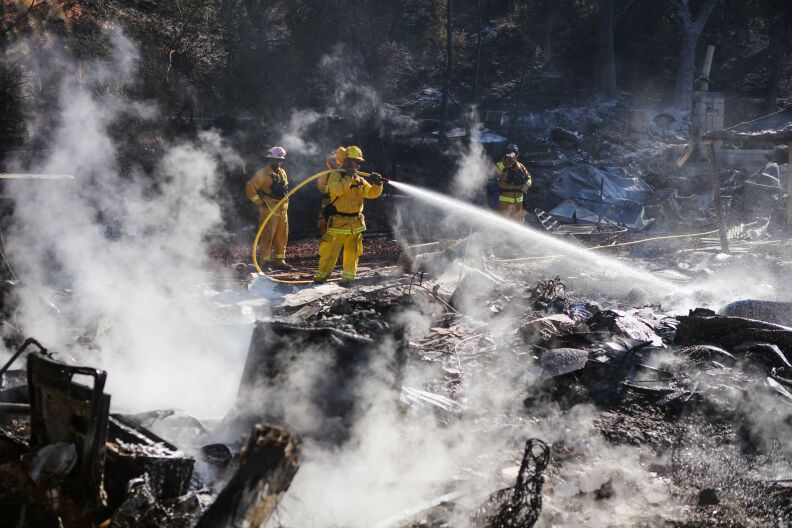A 40-year-old man has been arrested on suspicion of setting the Clayton fire in northern California, which officials say has burned more than 4,000 acres and destroyed more than 175 homes and businesses in the past few days.
Damin Pashilk of Clear Lake, Calif., is being held on suspicion of a total of 17 counts of arson in Lake County, Calif., over the past year. Lake County is a largely rural area of wineries and vacation homes about 120 miles north of San Francisco.
Fire investigator Tom Pierce told Airtalk there are two types of arsonists:
- For-profit arsonist: Someone who burns down a house, for example, to file a fraudulent insurance claim; typically a one-time event.
- Serial arsonist: Someone who is usually a loner and an underachiever; commits arson to possess a false sense of authority over the actions of firefighters in this case.
On solving arson cases
Pierce: We use what's called the scientific method. It involves inductive and deductive reasoning, gathering data and going through that data.
I'm investigating a building right now, a mobile home. We start from the outside of the building and walk around it, in a 36o-degree manner, looking for fire patterns. Fire investigators read fire patterns backwards, we go into the building and go to the least damaged area and start working our way towards the most damaged area. That'll get us into the room of origin, and then we want to be within our area of origin and start looking at the micro patterns that are in there, leading us into the point of origin.
We want to know the heat source, what was the material first ignited and the sequence of events that brought those two items together to start the fire. It could have been an electrical outlet, an overheated appliance or something as simple as a candle knocked down.
Or, once the fire scene is dug out, we can perhaps see gasoline pour patterns on the floor. After you've looked at all the evidence, you can determine whether you've got an accidental fire or an incendiary fire.
On approaching large-scale fires, such as the Clayton fire
Pierce: You start to gather information from first-responders and from witnesses who saw the fire in its beginning stages. We'll then map out an area that is about a half a mile, by half a mile and work our way back to the point of origin.
Is arson a preventable crime?
Pierce: There really isn't a way to prevent an arsonist from doing what they're doing.
How difficult is it to convict an arsonist?
Pierce: Arson is the hardest crime to get a conviction on because most of the time, the evidence is gone. In homicides, you’ve got DNA and fingerprint evidence.
Read KPCC’s coverage here.
This story has been updated.
This interview has been edited for clarity.
Guest:
Tom Pierce, a fire investigator with Pierce Fire Investigations based in Bakersfield; he has been involved in fire service since 1974, and has worked with the National Fire Academy, the California State Fire Marshal's Office, and many other law enforcement organizations












